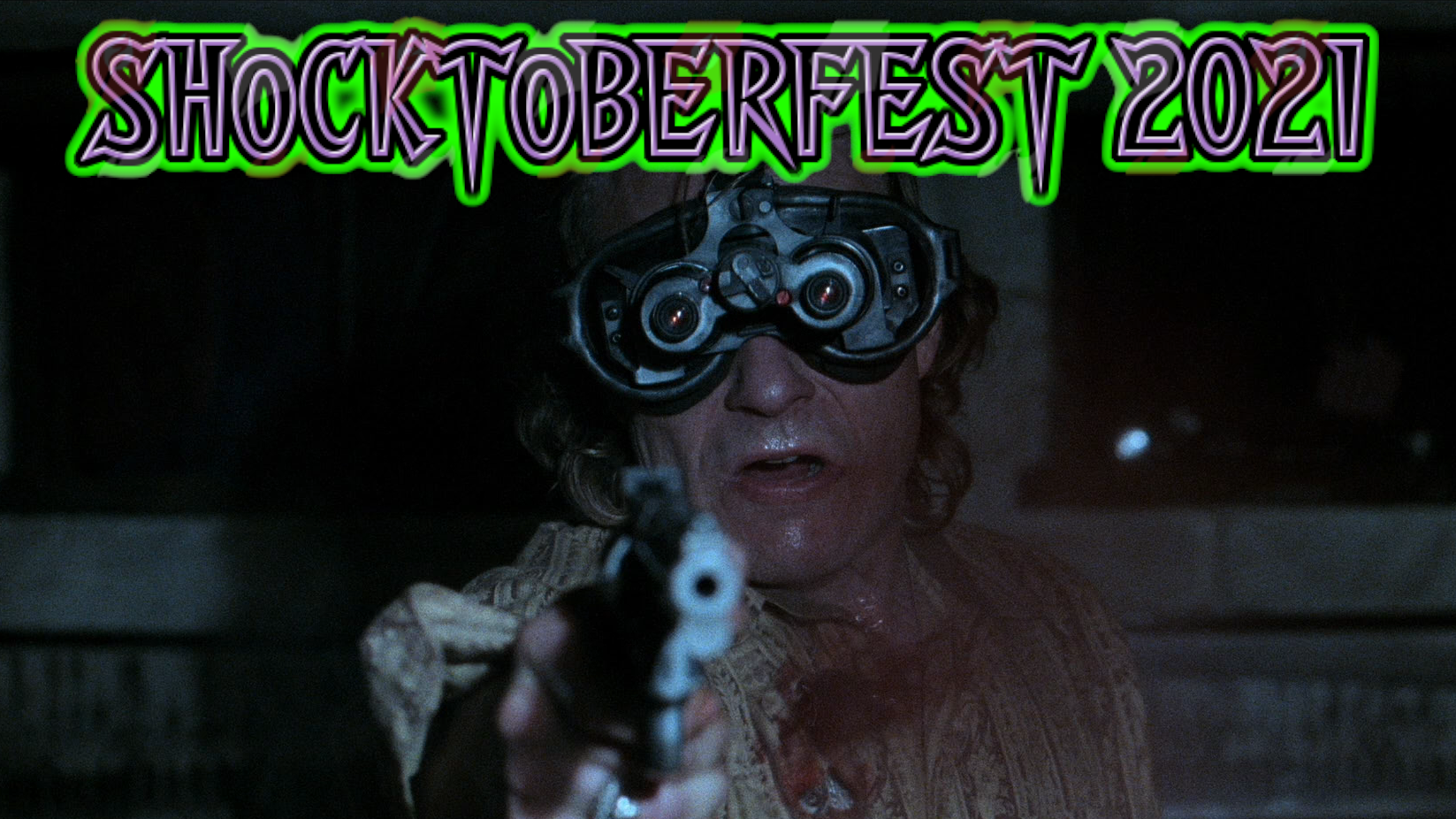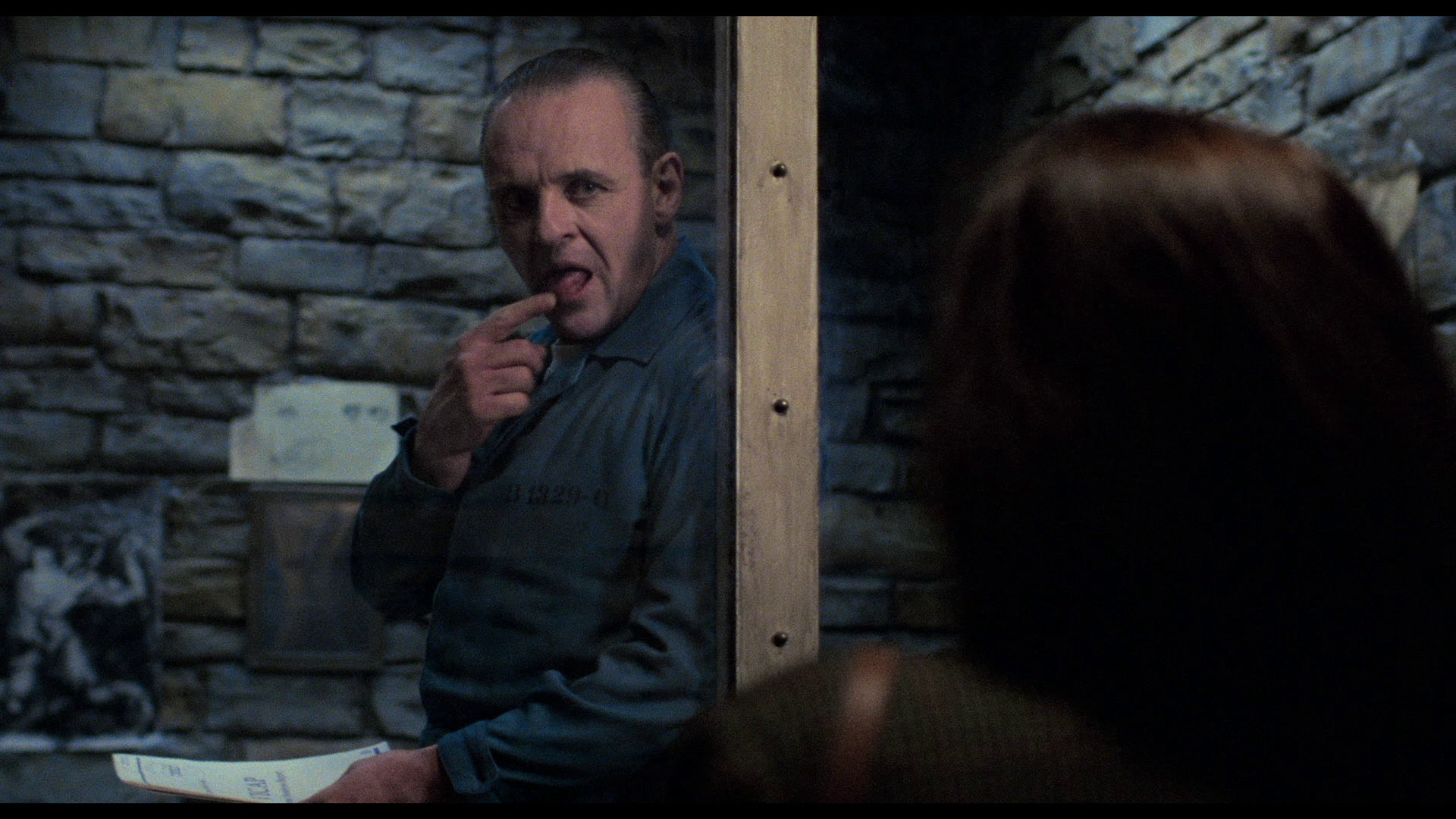
I believe that horror can save us. Horror makes sense of the chaotic, unpredictable modern world. It provides solace to our stressed and grieving hearts. Horror paints vibrant colors over darkened existences. Horror helps us discover the best in all of us.
The stories themselves bring these changes. Discovering the strange and unusual helps us to bond with others. It encourages trust-building, attachment, vulnerability, and empathy. Empathy is the capacity to understand and even feel what another person is experiencing. To paraphrase The Prayer For Peace, also known as the Prayer of Saint Francis, it is better to understand than to be understood*. Embracing the unknown brings us knowledge.
Of course, in horror, everything becomes subverted and twisted. A wily serial killer may use empathy to get closer to their victim. In the first Shocktoberfest 2021 movie, failing to understand can be a lethal thing.
Have the lambs stopped screaming yet?
1) Silence of the Lambs (1991) – Convicted serial killer Hannibal “The Cannibal” Lecter (Anthony Hopkins) is the number one villain on AFI’s 100 Heroes & Villains list, beating out the likes of Darth Vader and Pazuzu. Dr. Lecter’s evil super-power is his capacity to bond emotionally with his prey, leaving them defenseless when he springs his trap. He uses FBI agent-in-training Clarice Starling’s (Jodie Foster) ambition to initiate the chain of events that led to his escape from his underground, dungeon-like cell. Ever the apt pupil, Starling uses the lessons from Dr. Lecter to find serial killer Buffalo Bill (Ted Levine) and rescue Catherine Martin (Brooke Smith) from his abattoir.
 |
| Dr. Lecter wonders if Agent Starling would be finger-licking good. |
2) Black Christmas (2019) – Rigorous horror is confrontational. An audience can get very uncomfortable when the monsters staring back from the screen are as familiar as their own faces. The response to Sophia Takal’s Black Christmas is an excellent example of a movie that hit too close to home for some viewers. Black Christmas unflinchingly depicts the horror of being a female in an overwhelming misogynist environment. Many audience members felt the movie’s overt, feminist subtext was over the top and too political for a horror movie. You can read my review of Black Christmas here.
 |
| Aleyse Shannon’s response to “Horror movies aren’t political.” |
3) Candyman (2021) – FIRST TIME WATCH! Likewise, Nia DaCosta’s sequel to Bernard Rose’s 1992 original is a glimpse into an unfamiliar (for many viewers) and hostile setting. Black Christmas showed the unfair power bias found in academia. Candyman shows the effects on the black community in Chicago’s Cabrini-Green having to co-exist with racial oppression from the police. DaCosta bookends Candyman with police shootings of unarmed black men. In the 1977 opening, a young boy reenacts a traffic stop turned deadly with shadow puppets. Later, in the present, the police shoot a black man. This act sets off the movie’s cataclysmic finale.
 |
| Shadow puppets provide multilevel storytelling in Nia DaCosta’s Candyman |
No comments:
Post a Comment